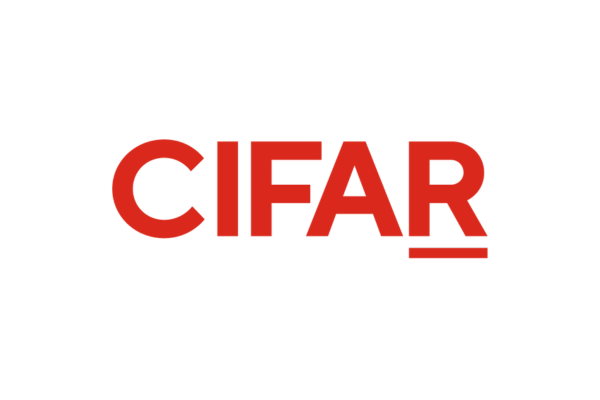
Fueling AI innovation with scientific breakthroughs: Vector’s research leadership
Vector’s renowned research community is advancing breakthroughs in AI. Over the past year, Vector researchers led numerous projects that ranged from finding new techniques that reduce computational load without compromising accuracy to exploring solutions to health care inequities. Each project contributes to AI’s potential to foster economic growth and improve lives in Ontario and Canada more broadly.
By the numbers: Showcasing the discoveries that reveal AI’s potential
962
researchers in the Vector community
369+
research papers presented at global conferences and in top-ranked journals, including:
50+ papers at ICML 2024, including four awarded “ICML Best Paper”
30+
research papers produced by Vector’s AI Engineering team, more than half of which were published or accepted at AI-related conferences.
329+
research talks
55+
Vector-hosted research events
Global recognition for AI breakthroughs
Explore awards and achievements earned by Vector researchers in 2024-25
Celebrating a shared legacy of AI innovation
Three of Vector’s co-founders and affiliated reseachers earned prestigious honours this year, which recognized their profound influence in shaping AI and inspiring the next generation of innovators.
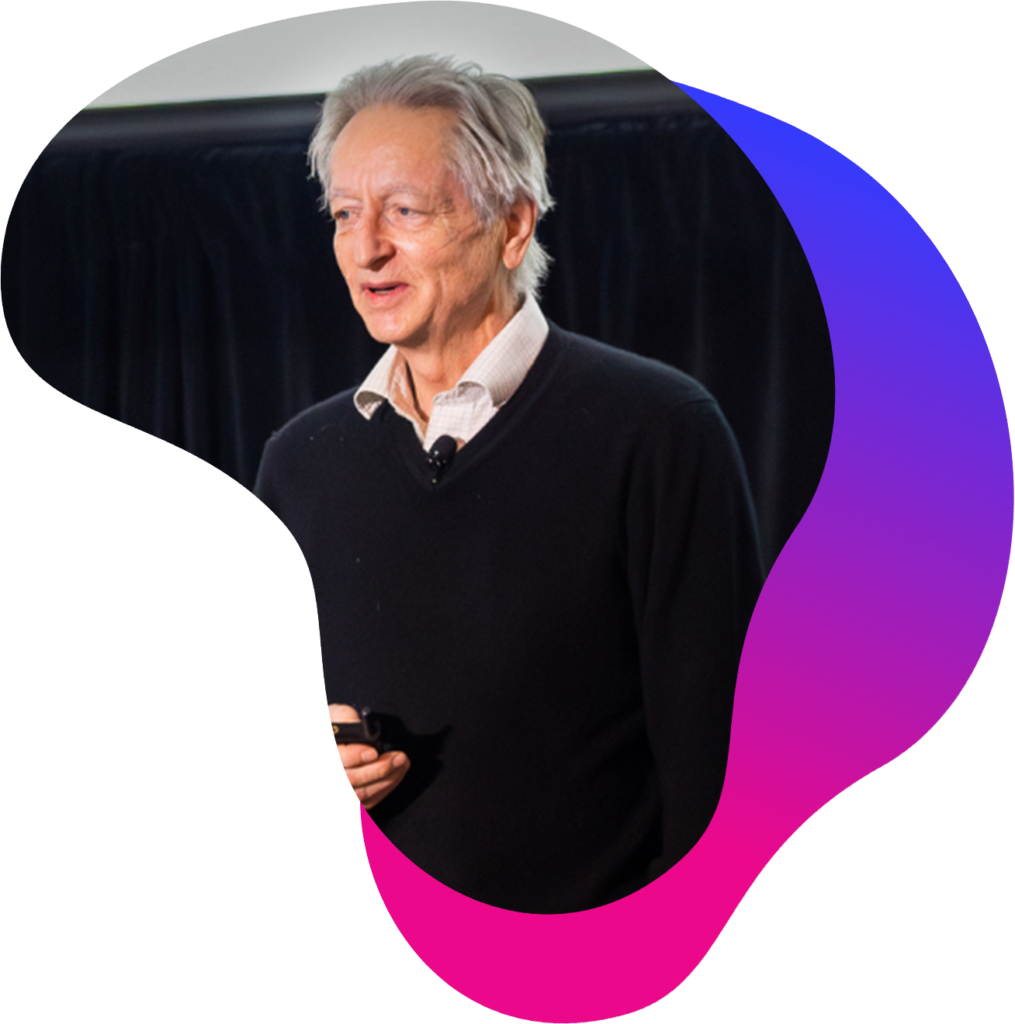
Geoffrey Hinton awarded Nobel Prize for Physics
Vector’s co-founder and Chief Scientific Advisor Geoffrey Hinton was honoured with the 2024 Nobel Prize in Physics, reflecting the global significance and transformative impact of his work.
Vector co-founder and Chief Scientific Advisor, Nobel Laureate
Sheila McIlraith earns CAIAC Lifetime Achievement Award
In recognition of her distinguished research in machine learning and AI safety and her enduring impact as a mentor of emerging talent, Vector Faculty Member Sheila McIlraith received the 2024 Lifetime Achievement Award from the Canadian Artificial Intelligence Association (CAIAC).
Vector Faculty Member and Canada CIFAR AI Chair, Professor in the Department of Computer Science, University of Toronto, and Associate Director and Research Lead, Schwartz Reisman Institute for Technology and Society

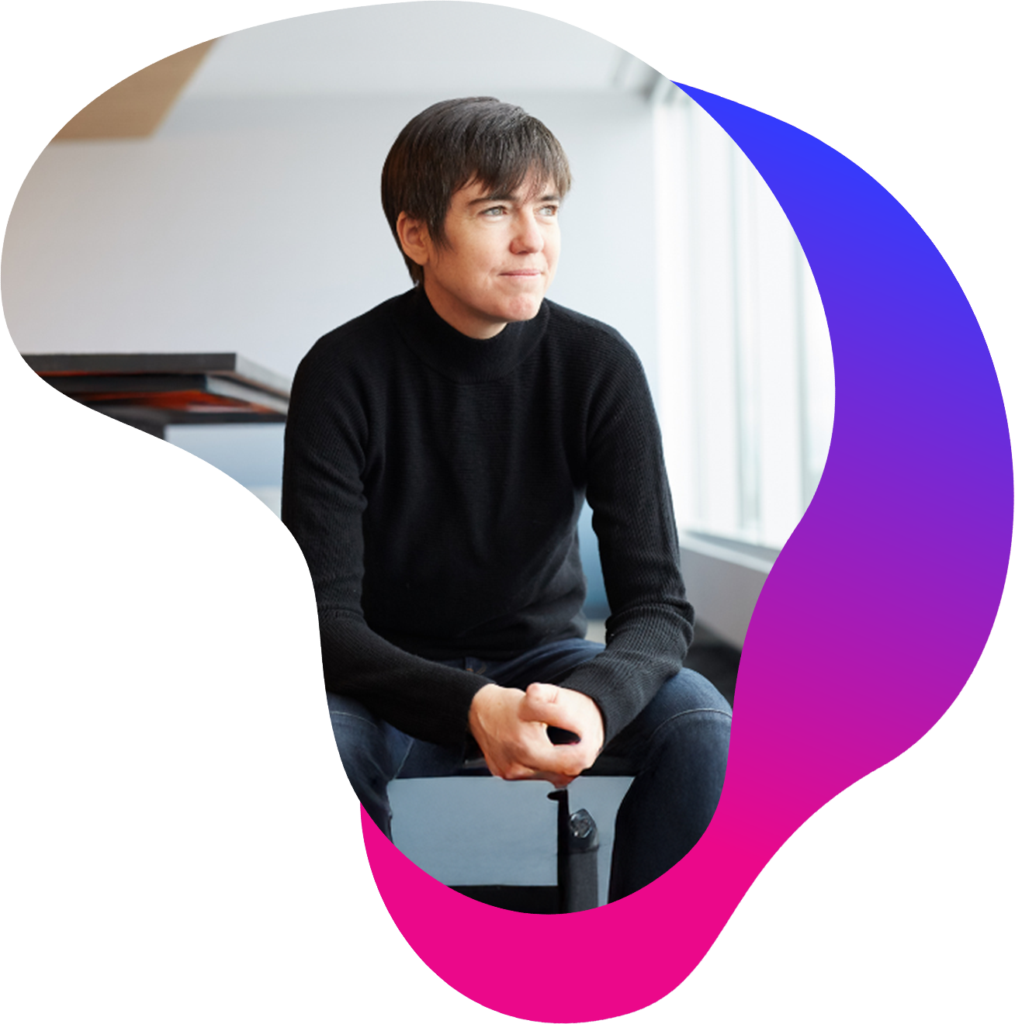
Raquel Urtasun named Fellow of the Royal Society of Canada
Vector co-founder and Faculty Member Raquel Urtasun was named a Fellow of the Royal Society of Canada in 2024, recognizing her contributions to AI research, especially in advancing safer, more efficient, and sustainable autonomous vehicle technologies.
Vector co-founder, Faculty Member, and Full Professor in the Department of Computer Science, University of Toronto
Advancing the frontiers of AI knowledge
Highlights of innovative research by Vector Faculty Members in 2024-25:
Xiaoxiao Li
Xiaoxiao Li was named a Canada Research Chair in Responsible AI for her work developing trustworthy, transparent systems that learn from diverse, changing data while protecting integrity, which can support ethical AI and improve decision-making in real-world applications.
Xi He
Xi He received the University of Waterloo’s Golden Jubilee Research Excellence Award for her research in differential privacy. She leads machine learning research in security, privacy, and fairness, with practical applications where data privacy is both crucial and complex.
Alán Aspuru-Guzik and Bo Wang
Alán Aspuru-Guzik and Bo Wang were featured in Nature for their innovations behind two of the seven “technologies to watch in 2025”: Aspuru-Guzik’s self-driving labs, which are advancing materials science, and Wang’s foundation models for biology, which show promise in cell classification and drug discovery.
Vered Shwartz
Vered Shwartz is collaborating on Canada CIFAR AI Catalyst Grant-enabled research to improve the cultural awareness of large language models (LLMs) by reducing Western-centric bias. In a separate project, she is advancing responsible LLM use in the legal domain.
Harnessing AI in the fight against climate change
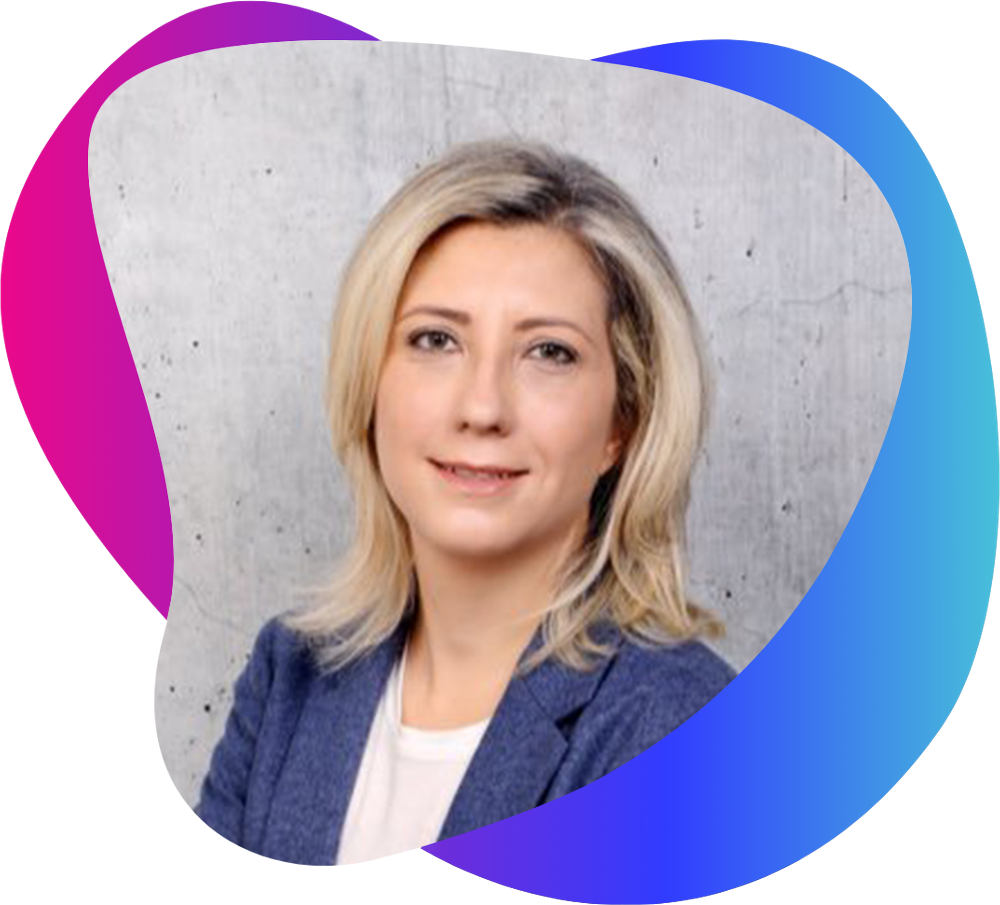
“Our collaboration with the Be Node platform connects Vector’s incredible research community and engineering expertise with global climate action groups to unlock the potential of AI-enabled solutions in our collective efforts to address climate change.“
Sedef Akinli Kocak
Director, Professional Development, Vector Institute, and Global AI Alliance for Climate Action Impact and Sustainability Lead
Democratizing weather forecasting with AI
Aiming to address both the urgency of climate threats and the environmental cost of forecasting them, Vector Postdoctoral Fellow James Requeima co-developed Aardvark Weather, an AI-powered model that delivers forecasts 10 times faster than conventional systems while using 1,000 times less computing power.
Aardvark uses end-to-end deep learning to map raw observational data, including satellite, ship, and station inputs, to key variables like precipitation and pressure, generating local and global forecasts in minutes. Research published in Nature shows Aardvark can outperform the U.S. Global Forecast System on several metrics.
The open-source model can operate on a desktop, making accurate and affordable forecasting accessible to smaller organizations and remote communities, with practical applications that range from wildfire predictions in B.C. to climate emergency preparedness in remote and Indigenous communities.

“Aardvark Weather’s end-to-end learning approach represents a paradigm shift in weather forecasting that could democratize access to accurate predictions worldwide. This breakthrough has significant implications not just for meteorology, but for climate resilience in regions without access to sophisticated forecasting infrastructure.”
James Requeima
Postdoctoral Fellow, Vector Institute
Attracting the world’s top AI talent to Canada
Opportunities to collaborate with industry and health organizations, access to advanced computing resources, and the Canada CIFAR AI Chair program are just some of the reasons why Vector attracts world-class researchers who are unlocking new possibilities in AI and helping to grow Ontario’s vibrant AI ecosystem.
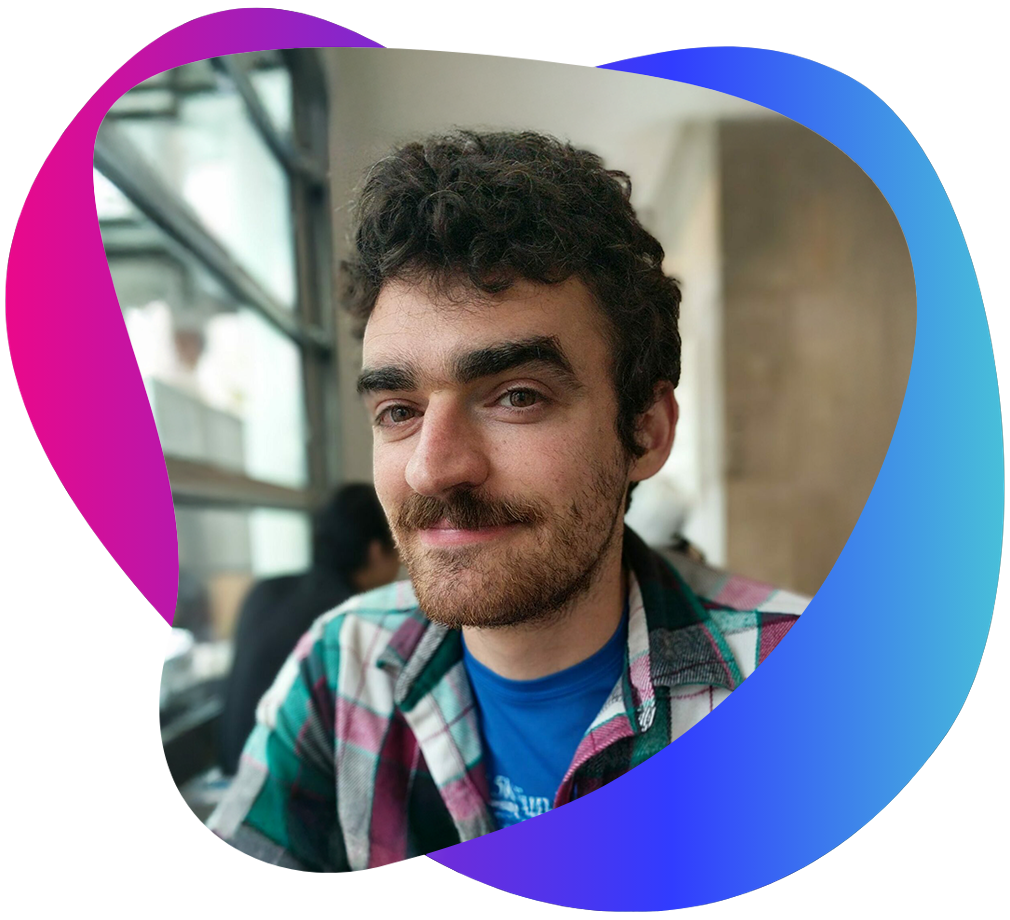
“Vector Institute’s reputation as a globally renowned AI research centre, combined with its computing infrastructure and collaborative community, made moving to Toronto an incredible opportunity. The ability to connect with leading researchers while accessing shared resources has been transformative for both my work and my students.”
Colin Raffel
Vector Faculty Member and Canada CIFAR AI Chair, Associate Research Director, AI Engineering and Infrastructure, Vector Institute, and Assistant Professor, Department of Computer Science, University of Toronto
By the numbers: Vector’s world-class research community
47
Faculty Members, including 44 Canada CIFAR AI Chairs
140
Faculty Affiliates
51
Postdoctoral Fellows
649
graduate researchers
75
undergraduate students
Meet Vector’s research community
Growing Vector’s community to shape AI’s future
Vector’s research community welcomed four new Faculty Members and Canada CIFAR AI Chairs this year:
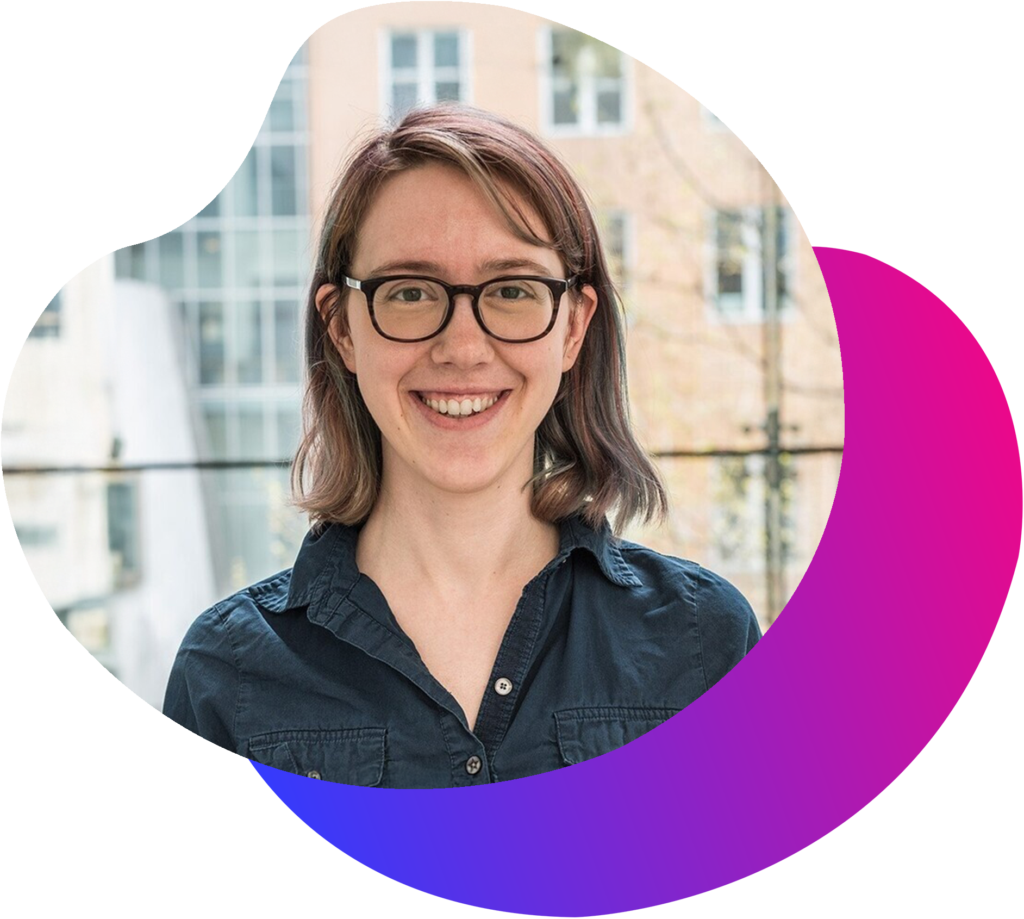
Kelsey Allen
Vector Faculty Member, Canada CIFAR AI Chair, Assistant Professor, Computer Science, University of British Columbia

Evan Shelhamer
Vector Faculty Member, Canada CIFAR AI Chair, Assistant Professor, Computer Science, University of British Columbia

Freda Shi
Vector Faculty Member, Canada CIFAR AI Chair, Assistant Professor, David R. Cheriton School of Computer Science, University of Waterloo

Victor Zhong
Vector Faculty Member, Canada CIFAR AI Chair, Assistant Professor, David R. Cheriton School of Computer Science, University of Waterloo
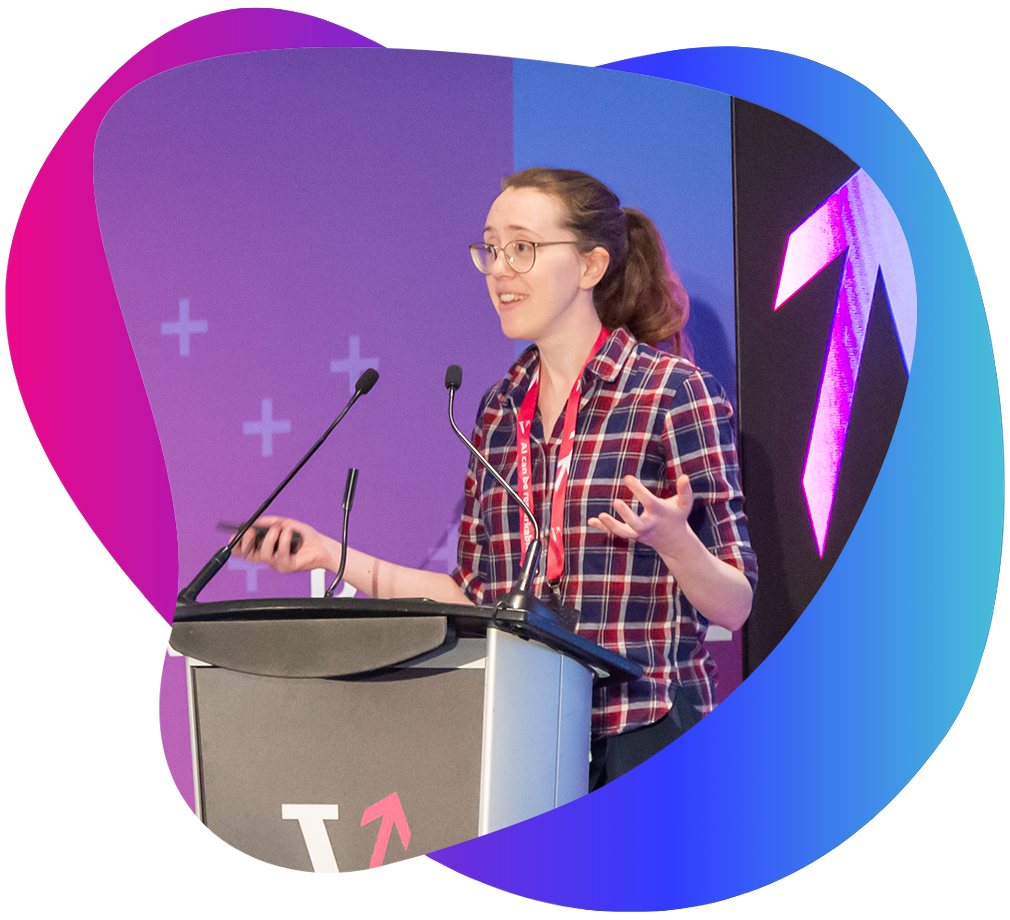
Bridging cognitive science and AI:
Kelsey Allen
Vector Faculty Member and Canada CIFAR AI Chair, and Assistant Professor, Computer Science, University of British Columbia
In a career that spans physics, cognitive science, and machine learning, Vector Faculty Member Kelsey Allen examines the mechanisms behind adaptive learning with a focus on reasoning and problem-solving skills. With an interdisciplinary approach to her AI research, she is combining cognitive science and machine learning to build systems that mirror human reasoning and learning.
Fostering tomorrow’s AI talent:
Vector expands its network of recognized programs
Vector recognizes 28 AI master’s programs at 13 Ontario universities to shape AI education and develop future talent. This year, Vector added two new programs at Carleton University and Wilfrid Laurier University to its community of recognized AI master’s programs and schools that equip graduate researchers with in-demand AI skills.
Vector also collaborates with a wide range of institutions across Canada and abroad further expanding its research network.
Advancing health with AI innovation
Vector researchers are harnessing privacy-protected health data to tackle challenges like staffing shortages and patient wait times and to improve patient outcomes. Health partners benefit from Vector’s AI engineering expertise, implementation tools, and talent pipeline, as well as collaborative projects to drive improvements in Canada’s health systems.
33
research partnerships
5
new data sharing agreements with Ontario hospitals and research collaborators
Transforming liver transplant care with machine learning

Liver transplants are a life-saving intervention for people living with end-stage liver disease. But conventional methods for prioritizing patients on waitlists create inequities, particularly for women, older patients, and people with complex or changing conditions.
Vector Faculty Member Rahul G. Krishnan and Vector Faculty Affiliate Mamatha Bhat have developed machine learning models that enable fairer and more effective transplant decisions and post-procedure care. Initially, a collaboration with University Health Network clinicians, the project is now being expanded to incorporate data from hospital systems across Canada.

Rahul G. Krishnan
Vector Faculty Member and Canada CIFAR AI Chair, Assistant Professor, Department of Computer Science, University of Toronto, and Assistant Professor, Department of Laboratory Medicine and Pathobiology, University of Toronto

Mamatha Bhat
Vector Faculty Affiliate, and Associate Professor, Department of Medicine, Temerty Faculty of Medicine, University of Toronto, University Health Network (Cross-Appointment)
Improving Alzheimer’s disease detection with natural language processing models

Vector Faculty Member and Dalhousie University’s Killam Memorial Chair Frank Rudzicz is leading research that uses natural language processing (NLP) models to detect Alzheimer’s disease via speech analysis. In a recent study, his team’s novel approach achieved 92% detection accuracy while reducing cost and invasiveness.
With dementia cases projected to rise sharply worldwide, this advance in AI-powered diagnostics has exciting potential for both clinical practice and the evolution of NLP innovations.

Frank Rudzicz
Vector Faculty Member and Canada CIFAR AI Chair, and Killam Memorial Chair and Associate Professor, Faculty of Computer Science, Dalhousie University
Revealing the future of precision surgery with computer vision

Vector Faculty Affiliate and head of University Health Network (UHN)’s Surgical AI Research Academy, Amin Madani, is developing AI-powered technology to improve the accuracy and safety of surgery in real time. Successful surgeries rely on a surgeon’s skill and judgment to navigate complex decisions under pressure and avoid complications.
Collaborating with Vector Faculty Member Michael Brudno and a multidisciplinary team of engineers and computer scientists, Madani and the team are using computer vision to train AI algorithms that offer real-time guidance during surgery. Madani calls AI-assisted surgery a ‘game-changer,’ citing the technology’s promising improvements in surgical precision and patient safety.
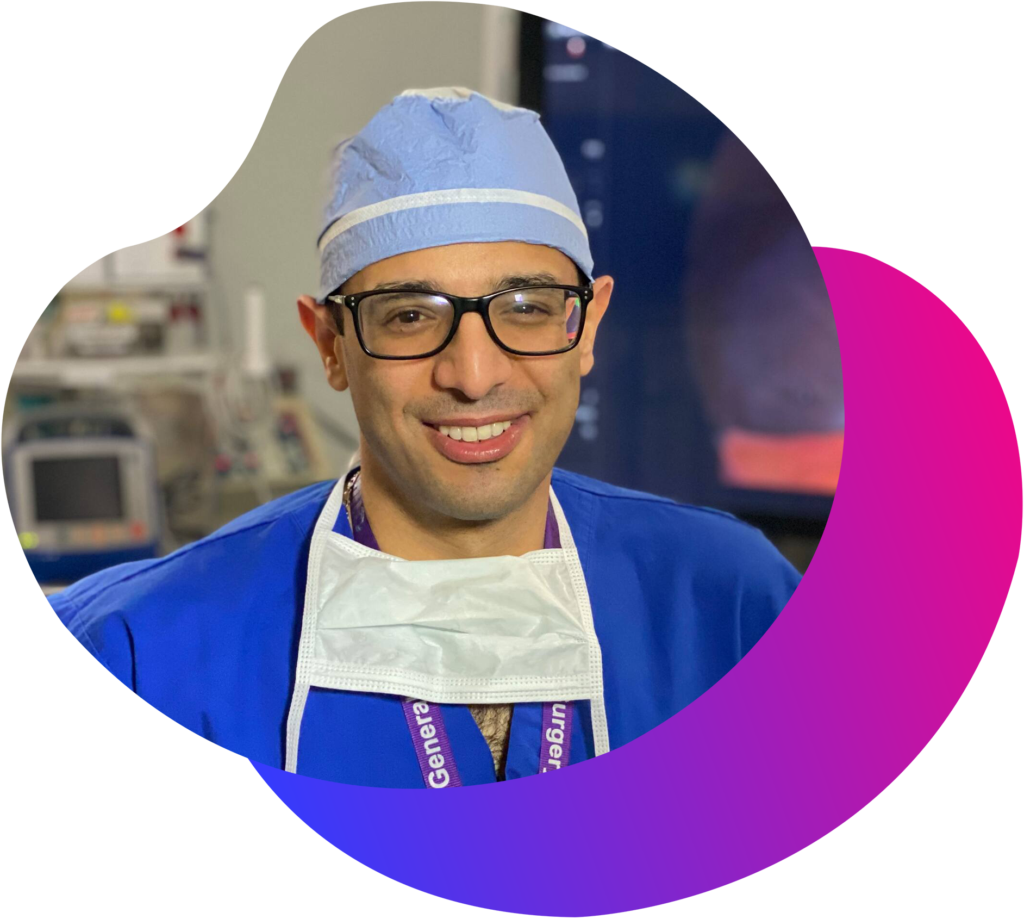
Amin Madani
Vector Faculty Affiliate, and Assistant Professor, Department of Surgery, Temerty Faculty of Medicine, University of Toronto

Michael Brudno
Vector Faculty Member and Canada CIFAR AI Chair, Professor, Department of Computer Science, University of Toronto, and Chief Data Scientist, University Health Network
Powering AI health research: Vector’s future-ready health compute system

As Vector continues to drive AI health research, its computing capacity is evolving to match. Vector’s scientific computing team, led by Director Rob Naccarato, has launched the Vector Health Computing Environment (VHCE), a secure digital lab for working with sensitive de-identified health data. The VHCE enables better data storage, tool access, and research scalability on a foundation that supports future upgrades and growth. Distinct from Vector’s main AI compute cluster but managed within the same robust data governance framework, the VHCE enables secure, scalable AI research fueling future health care innovations.
Fostering new capabilities and connections
Remarkable 2025
Vector’s annual Remarkable conference brings together leading researchers and industry to explore AI’s potential. This year, the flagship event welcomed more than 2,000 participants from over 40 countries in dynamic discussions, keynote addresses, and technical sessions where they gained new insights on topics at the intersection of research and application. Distinguished guests included Dr. Laura Gilbert, Head of AI for Government Ellison Institute of Technology in Oxford, and Ruslan Salakhutdinov, UPMC Professor at Carnegie Mellon University, as well as leaders from Vector’s health and industry partners.

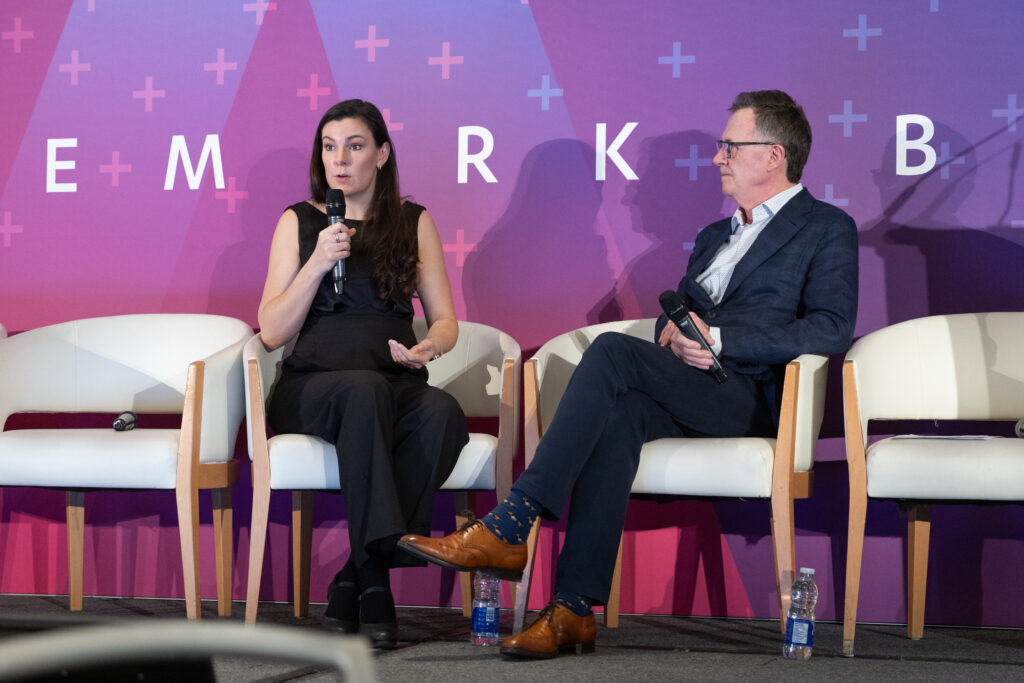
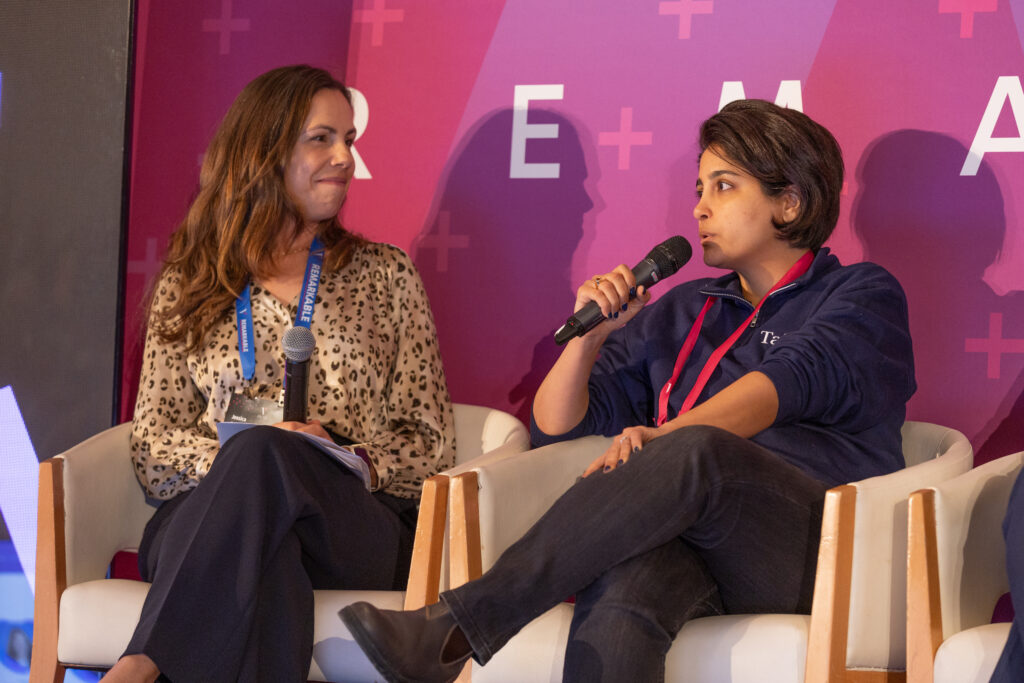

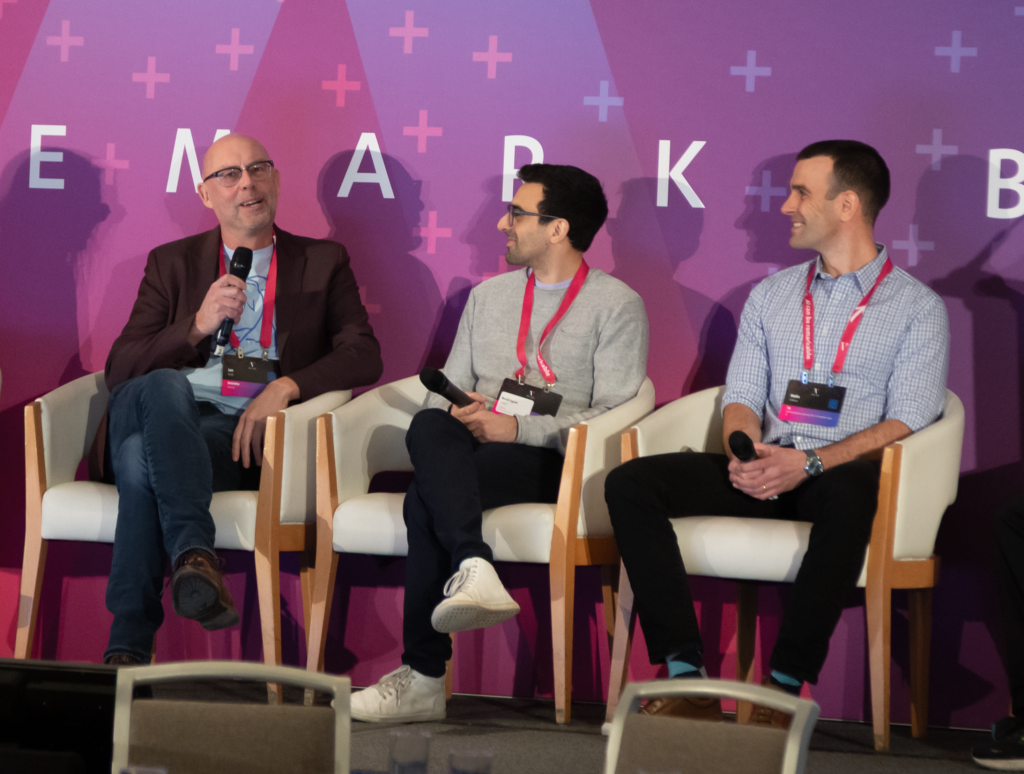
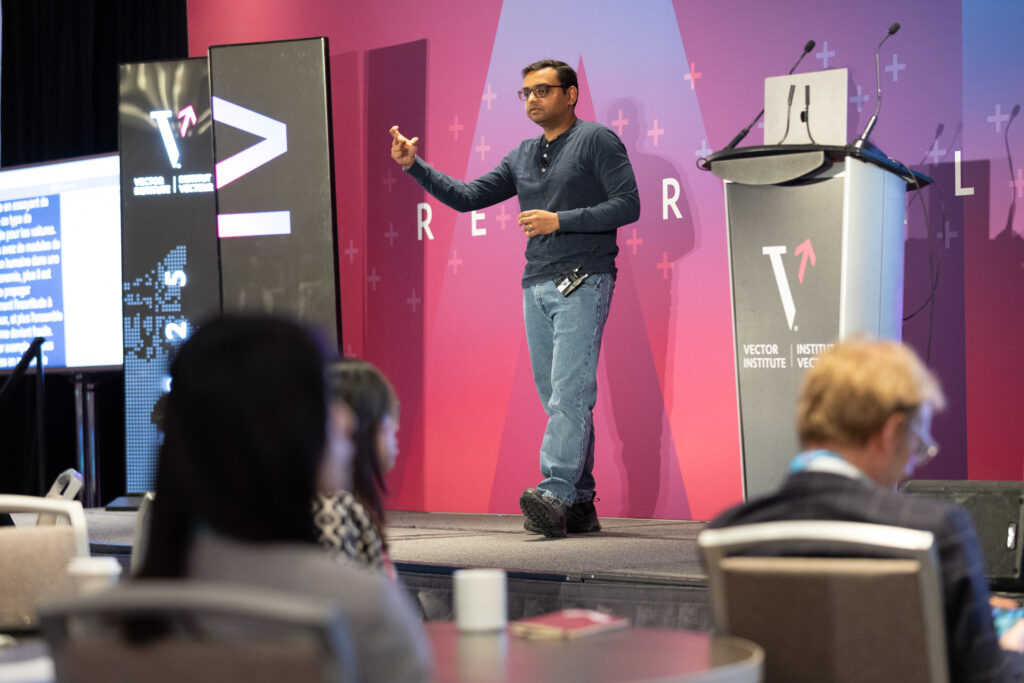
CIFAR Deep Learning + Reinforcement Learning Summer School
Over 200 graduate students, Postdoctoral Fellows, and professionals gathered at Vector in July 2024 for the CIFAR Deep Learning + Reinforcement Learning Summer School (DLRLSS). During the intensive 10-day program, participants learned from globally-renowned experts while making new connections across the AI ecosystem. Vector’s partners, including RBC, TELUS, TD, and Roche Canada were well-represented at the School. Marking its twentieth year, CIFAR’s flagship AI education initiative aligns with Vector’s commitment to fostering talent and advancing Canada’s AI leadership.
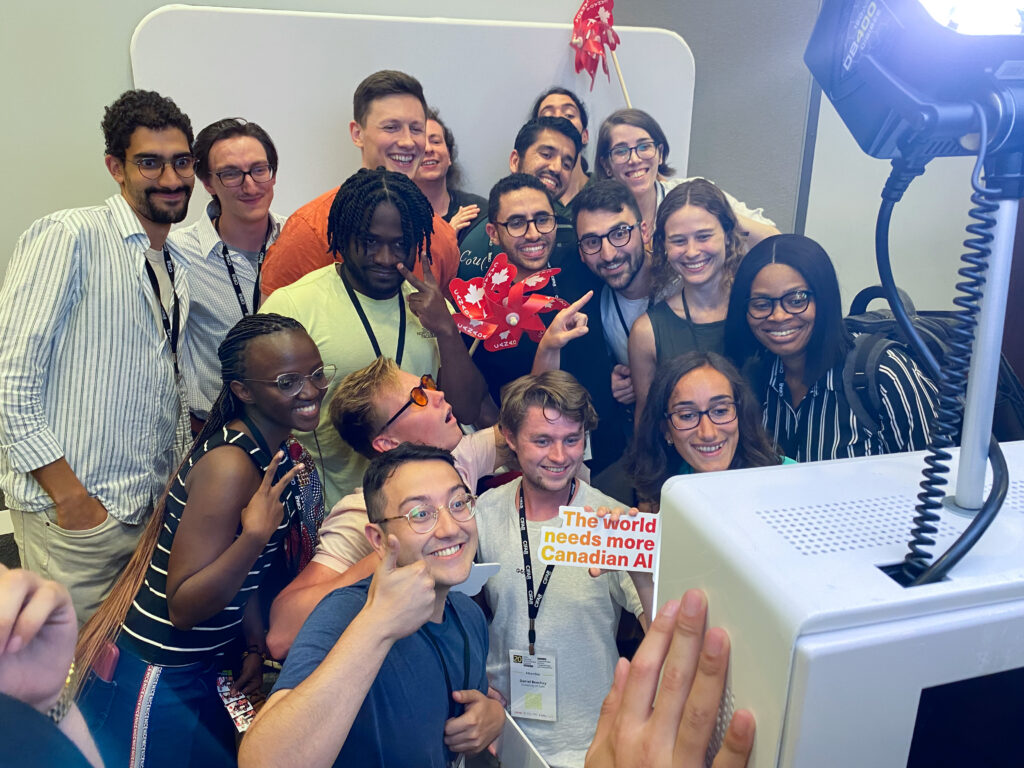
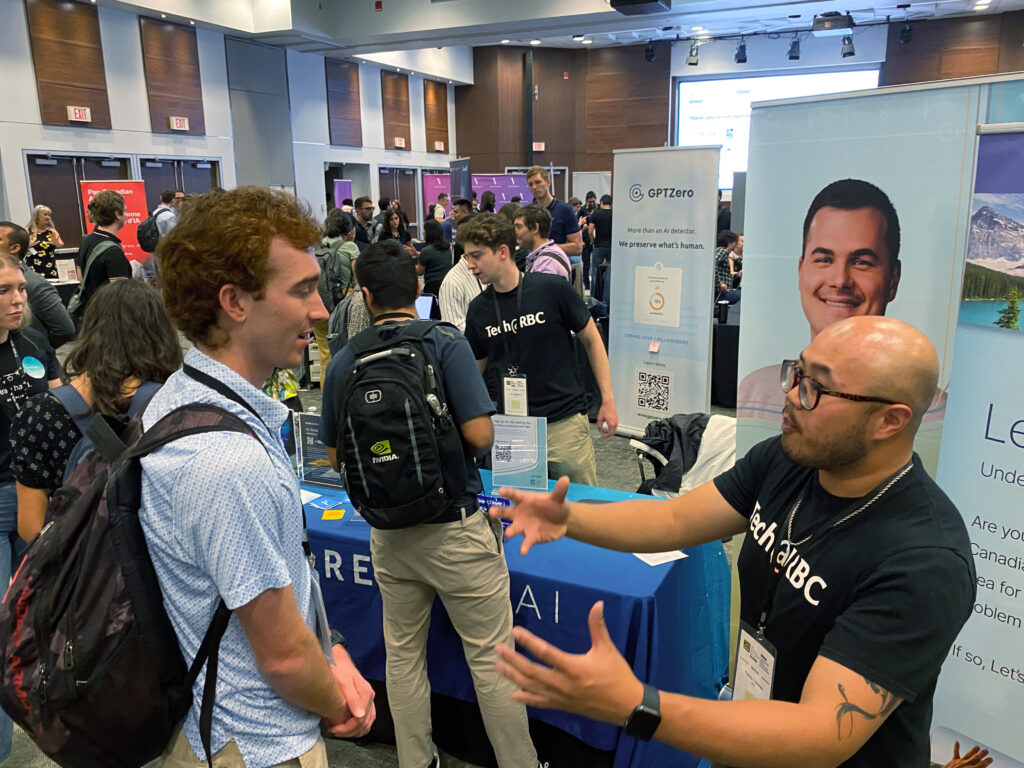
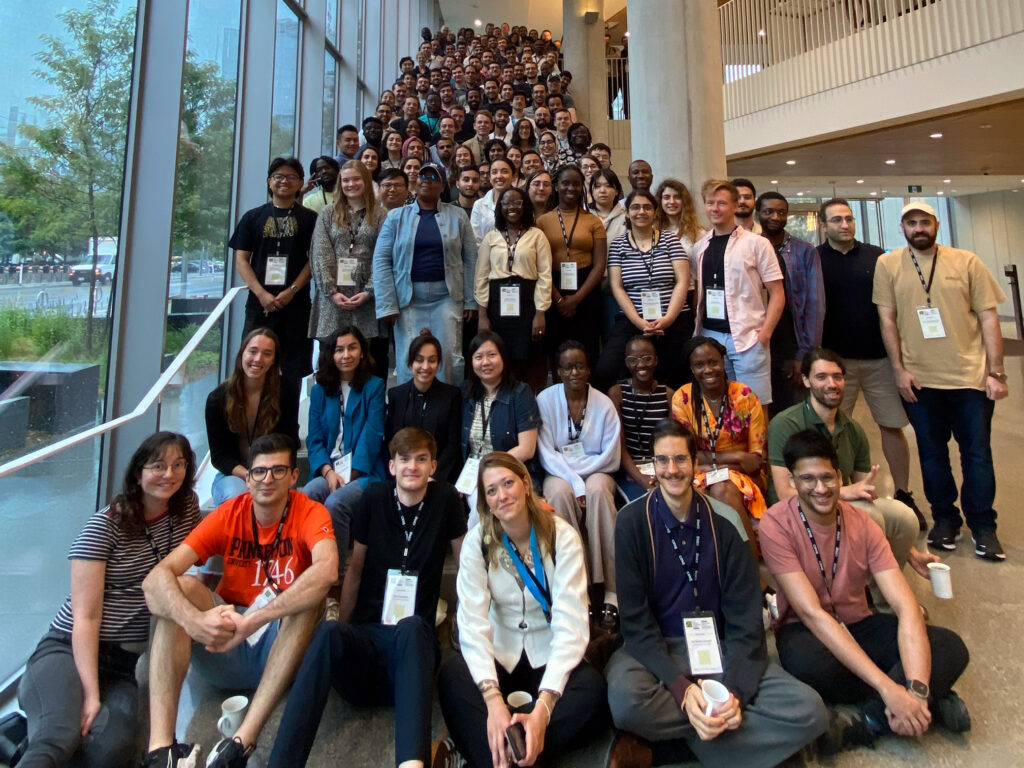
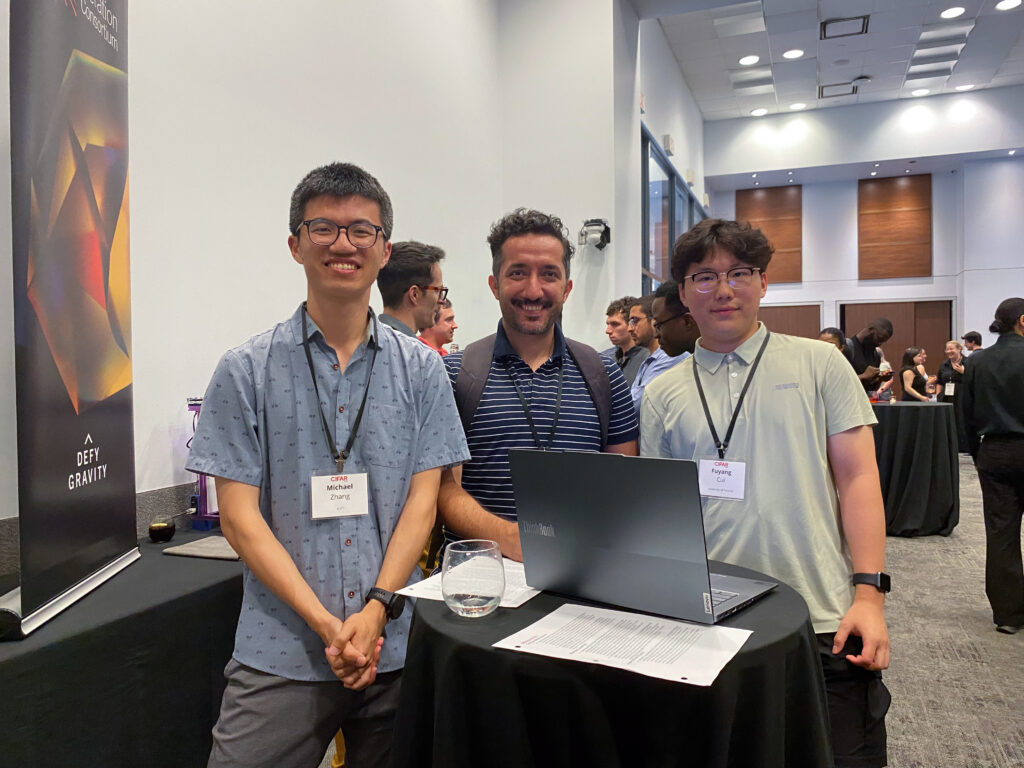
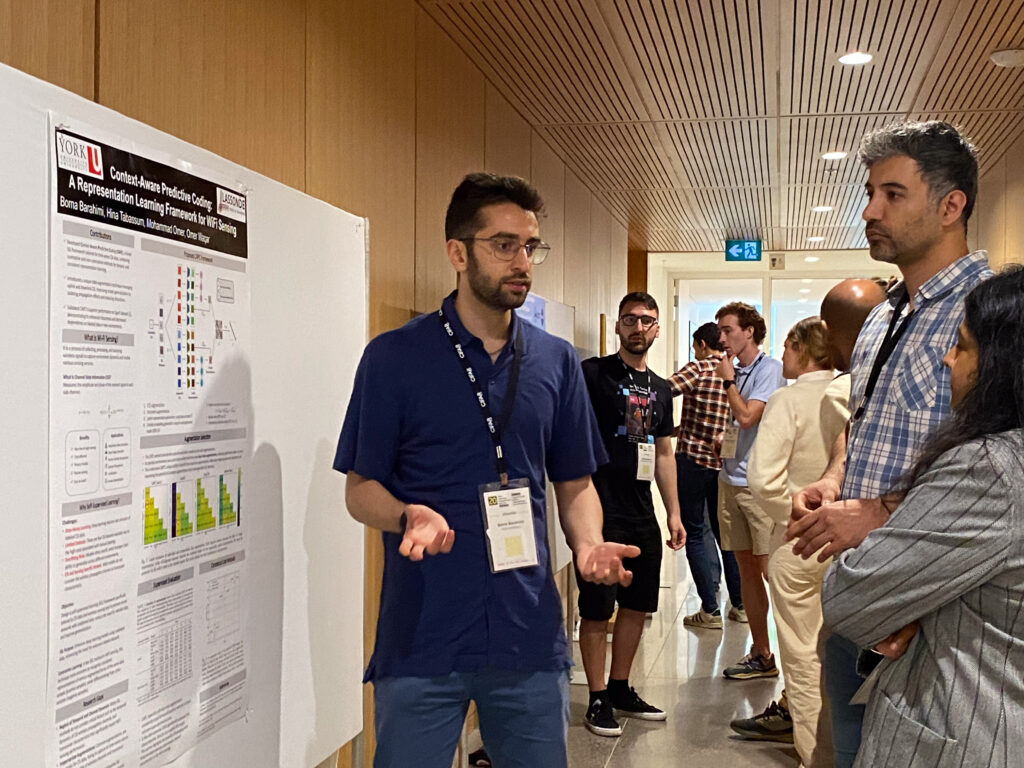
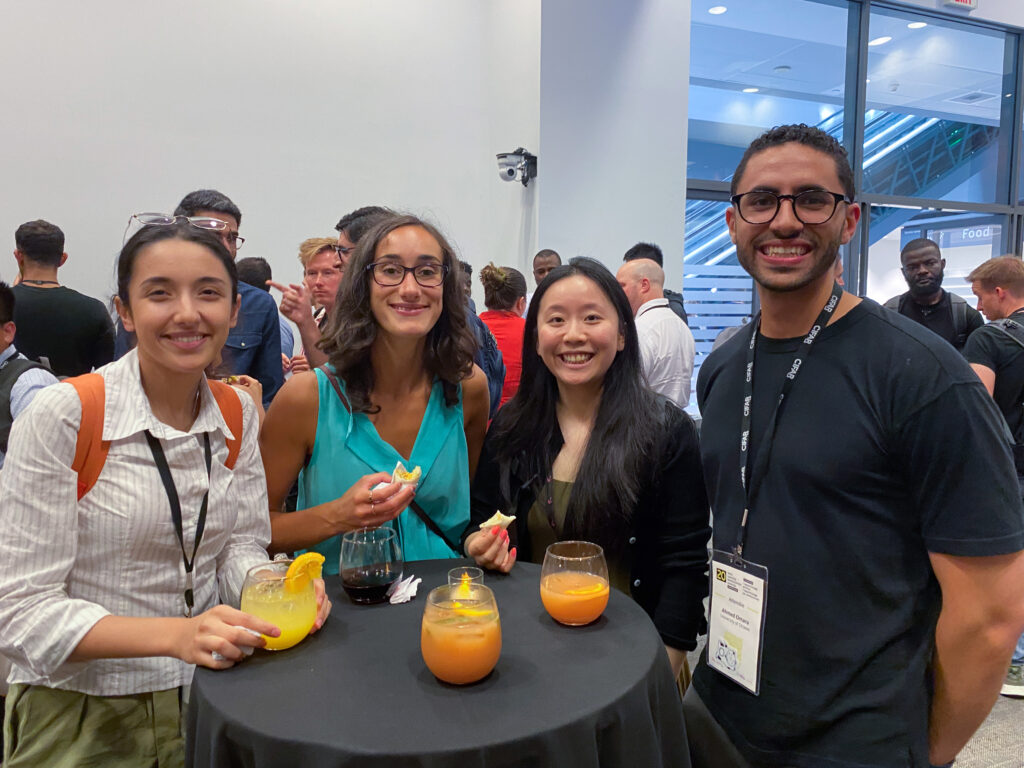
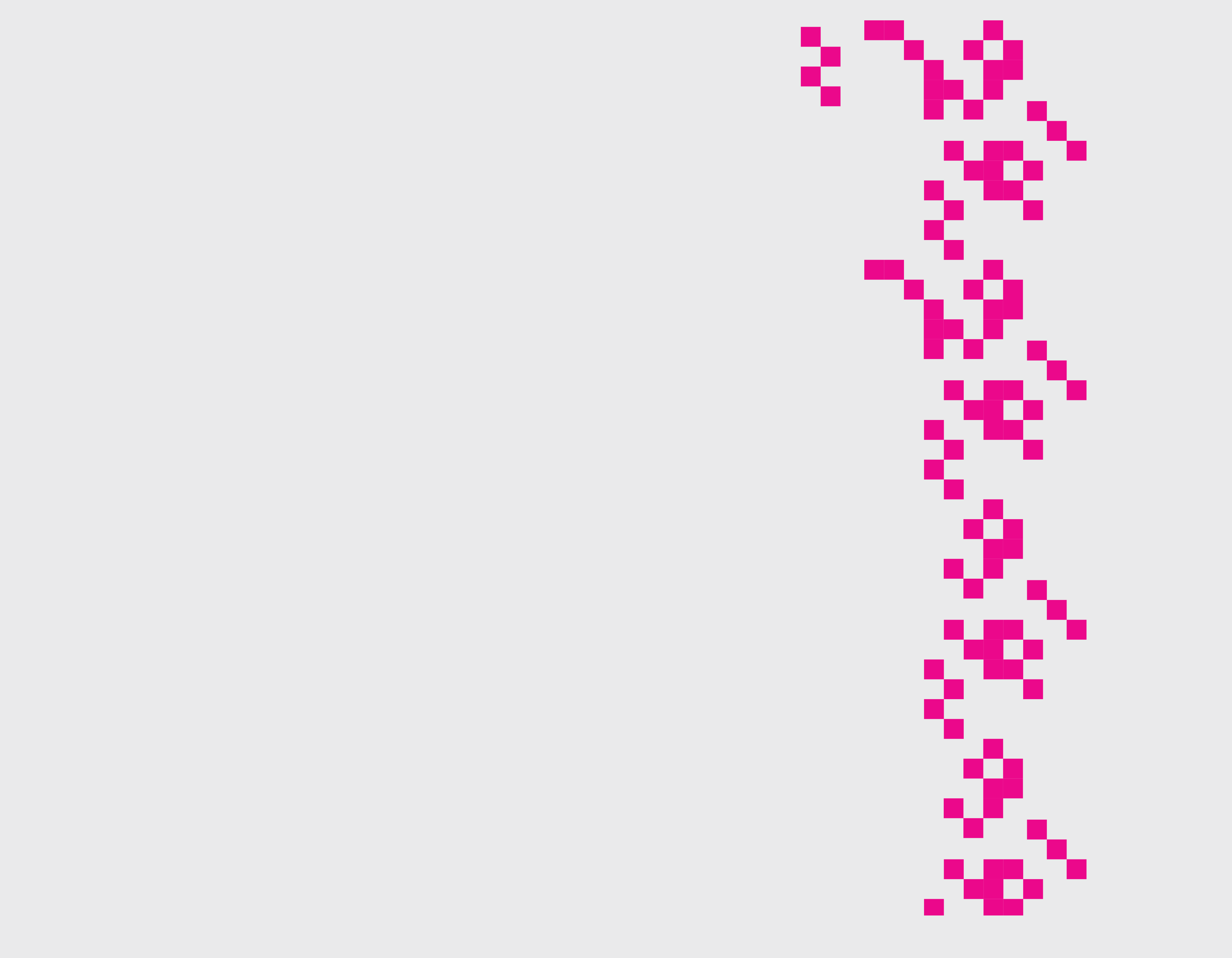
Where AI research meets real-world impact
The Vector Institute is funded by the Government of Canada, the Government of Ontario, and leading industry sponsors from across the Canadian economy.


